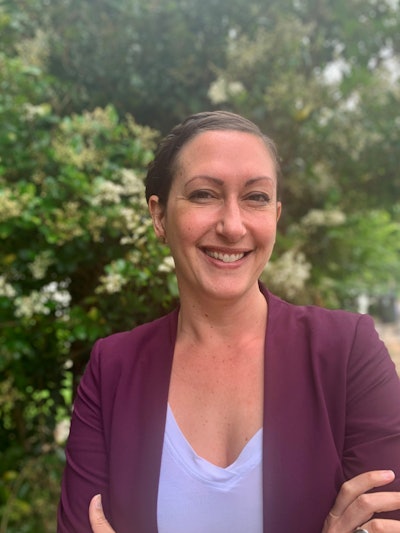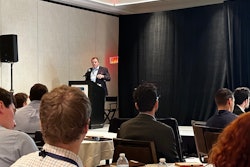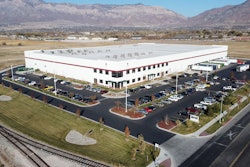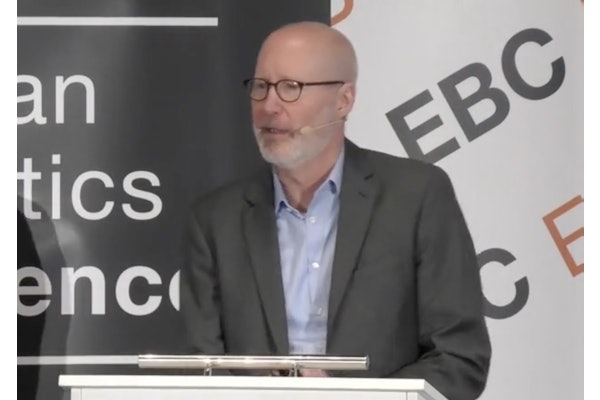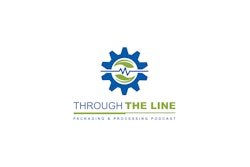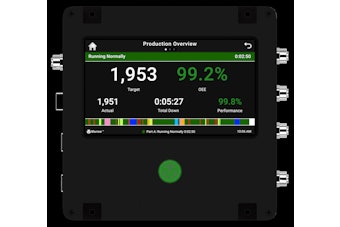Tell us about your background and how you got into the packaging industry.
After completing university, I was able to travel across Europe for three months, building a love of cultures and diverse perspectives. Leveraging my international experience, I began my career managing the global supply chain at Da-Lite Screen Company, orchestrating the supply of raw materials to three facilities in the U.S. and two in Europe from our partners in China, Taiwan, South Korea and India. I then joined Mars in 2011 moving from procuring indirect services, to raw material procurement, to our Global Capital Buying team where I spent four years sourcing the equipment to make M&Ms and Skittles, as well as our gum packaging equipment.
I then took my years of procurement experience to a central role where I led our global Center of Excellence leading the capability and engagement agenda for our commercial organization across Mars. Most recently, I moved to the role of global director for strategic capabilities leading our learning and development agenda for supply, procurement, R&D, sales and marketing.
What is the most rewarding part of your job today?
Today I get to live out my purpose of inspiring people and teaching them to trust themselves on a daily basis. I lean on my years of functional expertise to bring capability strategies to life serving both our associates through world class development and learning experiences, and Mars by enabling our future strategies. The most rewarding moments in my job are those where I see the impact of a development program on an associate, witnessing the shift in their presence, their confidence and their ability, in real time.
What are some of the challenges that you have faced as a woman in a male-dominated industry?
Being a minority in any situation comes, by definition, with the benefit of holding an uncommon perspective. The challenge is gaining the respect and visibility to share that perspective productively. For the first half of my career, I often found myself the only female and the youngest person in the room. The absolute baseline requirement to achieve in these circumstances is to perform with excellence, time and again. While this environment provided a wealth of learning from seasoned leaders, it made it difficult to be confident in my ideas and ask for constructive feedback. It was much later in my career when positioned in a role working directly with senior leaders that I felt confident enough to take the reins, resulting in a seat at the proverbial table and a voice in the conversation. I think the biggest challenge along the way was learning to channel frustration into a clear, firm opinion and recommendation. Often our emotions can come first, limiting our ability to get our message across and be heard. Focused development in command skills and courageous leadership enabled this shift in my approach.
What are the unique opportunities for women in this industry?
I don’t inherently believe there are different opportunities for women than for men in the industry, I think the opportunity comes in how we approach the space. I encourage women entering the industry to ask questions, to learn from the seasoned professionals and to be bold in their career objectives. Assume the opportunity will be afforded to you, ask for the development opportunities you feel you need and say “yes” to the things that scare you. If you’re unclear on the development opportunities you need, ask for a mentor and utilize that relationship to leap-frog your learnings.
What do you think are some of the key factors that have contributed to your success in the industry?
I think the three most critical enablers of my success have been personal resilience, surrounding myself with a strong team and the willingness to say yes. For me, personal resilience means marshalling available resources to meet the situation ahead, using my problem-solving skills to get through a challenge and my self-compassion to be kind to myself along the way. I work hard to ensure my self-worth is tied not to a specific outcome, but to how I approach the work and this enables me to receive feedback on a project without feeling as though it is feedback on myself as an human being. Part of being resilient is surrounding yourself with the right team to support you, both at work and outside the office. I consider my personal coach, my therapist, my family, my friends my team, and even my fitness instructor as a part of my personal team helping me perform my best. Lastly, say yes to the things that scare you. If it’s not a little scary, it's likely too easy and you won’t learn much. We grow and become our best selves by consistently stepping up to new challenges.
What has been the most important skill you’ve developed as you advanced your career?
The most important skill I’ve developed is the ability to always align people on a path forward through solution generation and business partnering. In a world of competing priorities and limited resources, finding alignment on how we’ll move forward, even when we’re not completely sure of all the steps required to meet our goal, is critical. It’s easy to be lost in ambiguity, differing opinions, to-do lists; but if you can create the clarity to move forward you will inherently bring value to the business and be seen as a leader.
What can the industry do better to support women and increase the number of women in leadership positions?
Leadership positions require courage and tenacity. I strongly believe making executive coaching and mentoring available at early career stages will lead to more female leaders. Additionally, giving early career females the chance to connect with current female leaders and watch them in action enables observational learning. Aspiring leaders can see how others navigate complex challenges and mimic behaviors while building their own personal style.
Flexible work will also continue to be a competitive advantage for organizations willing to consider future-oriented work practices. Flexibility looks different for everyone, and focusing on the unique needs of women in your leadership pipeline will ensure the talent moves into those leadership positions.
Has there been a woman in your life who has inspired or mentored you? Who was she and what did you learn from her?
I’ve been lucky enough to work with many incredible female leaders in my tenure at Mars, and I learn from them each every day. One particularly impactful woman was my line manager for a few years while stepping into my first role working closely with senior leaders. She taught me how to navigate complex conversations and hold people accountable in a productive way. I was able to mirror her style until I found my own. She also taught me to trust myself by valuing my opinion and investing in my development. It’s important we recognize the impact we have on those around us. Always value what people bring to the table and seek to understand their point of view. You’ll build a more successful company by creating future leaders in this way.
What advice would you give to young women who are considering a career in packaging?
Be bold and trust yourself. Leverage the years of experience and knowledge around you by listening, asking questions and seeking feedback. Be a willing participant in your career. Things happen, they don’t happen to you. Be aware of shifts in your environment and think ahead as to how you can bring value in the new paradigm. Keep going, even when you’re unsure, and the answer will present itself. Surround yourself with a team of people who are invested in your success and pay it forward to those who are coming behind you.
